Graham Reid | | 3 min read
Marvin Gaye: I Heard It Through the Grapevine
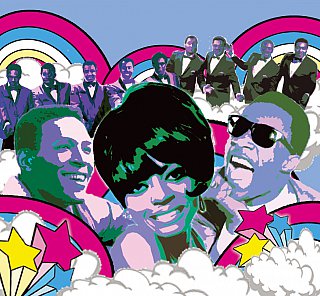
In 2009, Motown celebrated its 50th anniversary. Not that there was much to celebrate in 2009. The golden years for this classic and culture-shifting label had started to wither some three decades previous and it was notable that when it released compilation albums to cash in on this anniversary they were shoddy and sorry affairs, woeful in their tracklisting, and elevated Michael Jackson.
Jackson's world-beating career had come when he was on Columbia/Sony -- but Motown, now in the hands of Universal, shoved the young Jackson up to front and centre of most of it compilation reissues.
But those early years of Motown produced some thrilling and important music, whether it be Martha Reeves and the Vandellas "calling out around the world, are you ready for a brand new beat" or Marvin Gaye asking at the height of black dissent in the ghettos and the Vietnam War "what's going on?"
These days most of those early songs are nostalgia fodder in films set in the Sixties, but even now many still sound terrific -- and the Motown style and sound has been much, and oddly enough in the past five years, increasingly copied.
Artists such as Duffy and Beth Rowley, Opensouls and Mayer Hawthorne all owe a huge debt to the sound that came out of Hitsville USA.
Here follows a timeline of Motown in its first two decades.
 1959: Berry Gordy, a successful songwriter borrows US$800 and establishes Motown Records and Jobete Publishing. Motown takes its name from Detroit being the capital of the motor industry, motor-town. Jobete comes from the names of the Gordy children, Hazel JOy, BErry and TErry.
1959: Berry Gordy, a successful songwriter borrows US$800 and establishes Motown Records and Jobete Publishing. Motown takes its name from Detroit being the capital of the motor industry, motor-town. Jobete comes from the names of the Gordy children, Hazel JOy, BErry and TErry.
1960: Gordy takes a two-storey house as the Motown office and studio and hangs a sign outside which reads “Hitsville USA”. The Miracles’ Shop Around is number one r’n’b hit, the Marvelettes’ Please Mr Postman (later covered by the Beatles as were many early Motown songs) tops the pop charts.
1962: The first Motown Revue of artists hits the road.
1963: “Little” Stevie Wonder, aged 13, has the number one single (Fingertips Pt 2) and the number one album.
1964: Big hits from the Supremes, Four Tops, Temptations, Martha and The Vandellas, and Marvin Gaye.
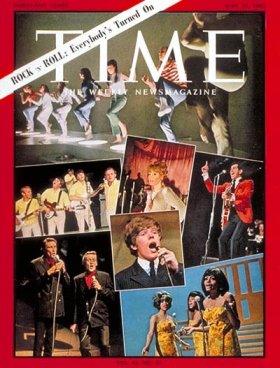 1965: The Supremes have five hits in a row and are on the "rock'n'roll" cover of Time (which, improbably includes lightweight British pop band Herman's Hermits, folk singer Trini Lopez and pop balladeer Petula Clark).
1965: The Supremes have five hits in a row and are on the "rock'n'roll" cover of Time (which, improbably includes lightweight British pop band Herman's Hermits, folk singer Trini Lopez and pop balladeer Petula Clark).
1966: The Motown song writing team of Holland-Dozier-Holland receive eight awards at the BMI annual dinner, three more than Lennon-McCartney.
1967: Company profits have grown from $1 annually in 1960 to $40 million.
1968: In the last week of the year Motown acts hold five of the top 10 spots on the US singles chart, and 75 percent of Motown releases that year appeared on the charts.
1969: The Temptations’ Cloud Nine is the first Motown single to win a Grammy.
1970: Diana Ross quits the Supremes, the Jackson 5 are the first artists to top the charts with their first four singles. Motown averages a hit very 10 weeks.
1971: Rolling Stone names Marvin Gaye’s What’s Going On as its album of the year.
1972: Controversially, Motown moves its headquarters to Los Angeles.
1973: Diana Ross gets a best Oscar nomination for her portrayal of Billie Holiday in Lady Sings The Blues.
1974 - 75: The start of Stevie Wonder’s classic period with hit albums Fulfillingness’ First Finale and Inner Visions -- and singles from them -- dominating the charts and winning him two consecutive Grammys for album of the year (among other awards).
1976: Stevie Wonder’s Songs in the Key of Life debuts at number one, the first double album to do so. Another album of the year Grammy for Stevie.
1977: Whitney Houston’s Don’t Leave Me This Way grabs a Grammy and is the first Motown single to top the pop, R’n’B and Dance charts. Mary Wilson disbands the Supremes.
1978: The Commodores’ Natural High becomes their third album to go top three in the US charts. Motown underwrites the movie The Wiz, an urban retelling of The Wizard of Oz, starring Diana Ross, Michael Jackson and Richard Pryor. It is a critical and commercial failure.
1979: The beginning of very lean years for Motown which sees the company steadily losing money. In 1988 Gordy sells his ownership of the music company to MCA and the following year flicks the film and television arm. Although it still has a good roster of acts, Motown goes through the 90s in commercial turmoil.
The golden days are gone.

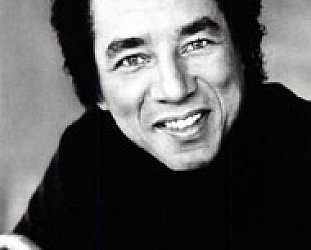
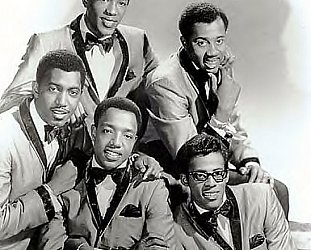



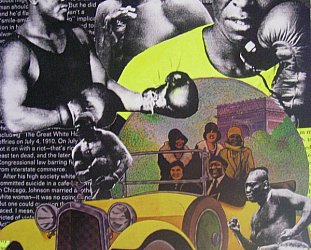
post a comment